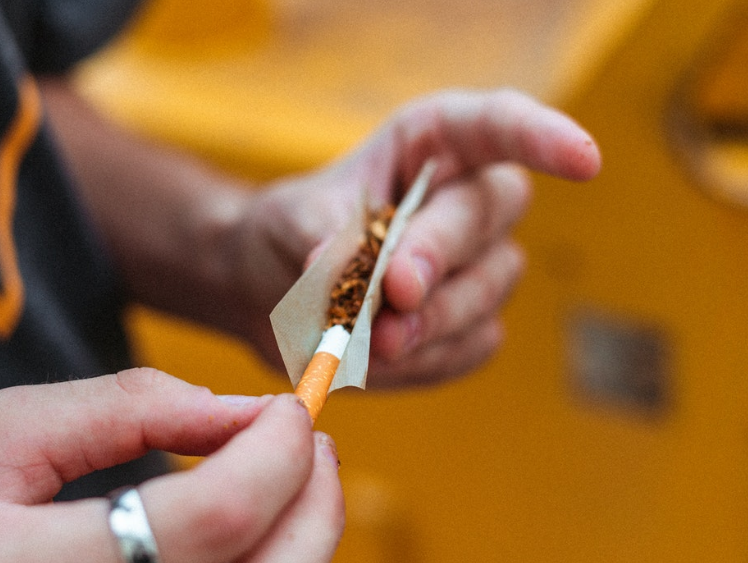A proposal that could’ve outlawed popular hemp-derived THC products across the U.S. has quietly fizzled out on Capitol Hill. Senate leaders dropped the contested language from a federal spending bill on Tuesday, following a sharp behind-the-scenes tug-of-war between two Republican senators — both from Kentucky.
The drama pits former Senate Majority Leader Mitch McConnell, once a champion of hemp, against libertarian-leaning Sen. Rand Paul, who has become one of the industry’s loudest defenders. The end result? For now, the booming market in hemp-derived drinks, gummies and oils stays intact.
A ‘ban by definition’ quietly vanishes
The now-removed proposal would have redefined hemp at the federal level, tightening the 2018 Farm Bill’s definition to exclude products containing “intoxicating” levels of THC — including delta-8, delta-9 and similar compounds.
That language, initially tucked into the Senate’s Agriculture-FDA spending bill, was removed in the final version released Tuesday. There was no public debate, no dramatic announcement. It simply disappeared.
McConnell, who once held a hemp pen to sign the 2018 Farm Bill into law, has since soured on the industry’s direction.
“He’s had buyer’s remorse,” a congressional aide told Politico this week.

Kentucky feud at the heart of the matter
This isn’t just about hemp. It’s also about Kentucky — and two men who have spent years trying to shape how America thinks about cannabis and its legal cousins.
McConnell, long seen as the architect of legal hemp, now says the loophole in his bill has led to an unregulated grey market of intoxicants.
Paul sees it differently. He’s argued that banning hemp-derived cannabinoids would destroy small businesses, many of them operating legally under the Farm Bill’s language. And in Kentucky, where tobacco’s collapse left a vacuum, hemp’s rise has been something of an economic life raft.
Two senators. One state. Totally different vibes.
A booming market under threat
What’s really at stake? A whole lot of money — and legal chaos if things had gone the other way.
Hemp-derived THC products, especially delta-8 and delta-10, have become a massive industry in the U.S., especially in states where cannabis is still illegal. Unlike marijuana, which remains federally banned, hemp-derived THC is protected under the 2018 Farm Bill — as long as it’s extracted from hemp and doesn’t exceed 0.3% delta-9 THC by dry weight.
But that 0.3% limit? It left room for chemists and entrepreneurs to get creative.
-
Gummies, seltzers and tinctures with potent psychoactive effects are now sold across gas stations, convenience stores, and online — no prescription, no cannabis license required.
-
The U.S. hemp-derived cannabinoid market was valued at over $3.5 billion in 2023, according to Whitney Economics.
-
More than 4,000 U.S. companies are actively producing or selling these products.
That legal limbo is exactly what McConnell’s camp wanted to shut down. Paul, meanwhile, sees it as a feature, not a bug.
Legal grey areas remain untouched
For now, at least, those gummies and drinks remain federally legal — and unregulated.
One sentence. That’s all it would’ve taken to turn the hemp market upside down.
Had the Senate language passed, it could’ve triggered a cascade of enforcement actions from the FDA and DEA, and possibly led to arrests or seizures across multiple states. Instead, lawmakers kicked the can down the road.
Many in the industry let out a sigh of relief Tuesday afternoon. Some weren’t even aware how close they came to losing everything.
The 2023 Farm Bill delay makes things murkier
Technically, we’re all still waiting on the next Farm Bill — the 2023 one that’s now overdue.
The Senate’s failed amendment could have folded into that broader legislative package. But with political gridlock and an election year in full swing, even that’s starting to feel unlikely.
Here’s how the timeline looks:
| Event | Status | Impact on Hemp Products |
|---|---|---|
| 2018 Farm Bill | Active law | Legalised hemp under 0.3% THC |
| 2023 Farm Bill | Delayed | No immediate updates |
| Senate spending bill (2024) | Language removed on Tuesday | Maintains status quo |
| McConnell-Paul standoff | Ongoing | Further restrictions stalled |
What’s next? A lot of uncertainty, and some new lobbying
While the current proposal is dead, no one’s under the illusion that it’s over for good.
Lobbyists on both sides are already working the phones. McConnell’s allies want this language back into the 2023 Farm Bill. Industry groups — including the Hemp Roundtable and American Trade Association for Cannabis and Hemp — are organising to ensure that doesn’t happen.
And the public? Most of them probably have no idea what delta-8 even is. But it’s in their shops, their drinks, maybe even their fridge.
Some insiders expect state-level bans to pick up steam again. Others warn of a patchwork of enforcement, where what’s legal in one county becomes criminal in the next.
Meanwhile, delta-8 sellers are pumping out more products than ever.
One staffer summed it up best: “It’s wild that this entire industry is balancing on a decimal point and a definition written six years ago.”
